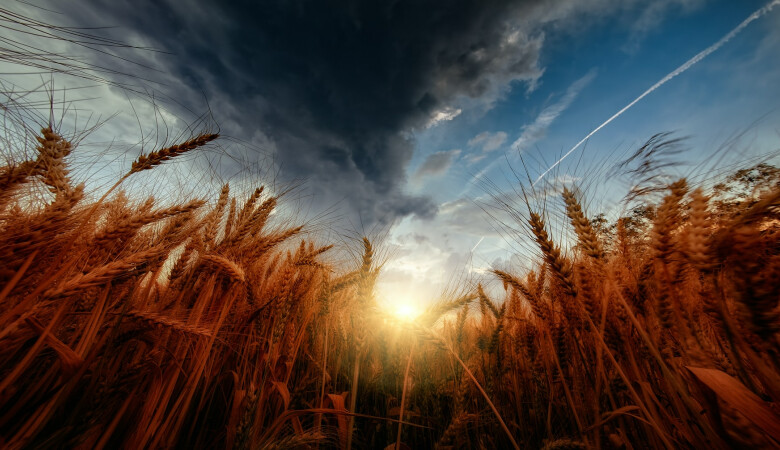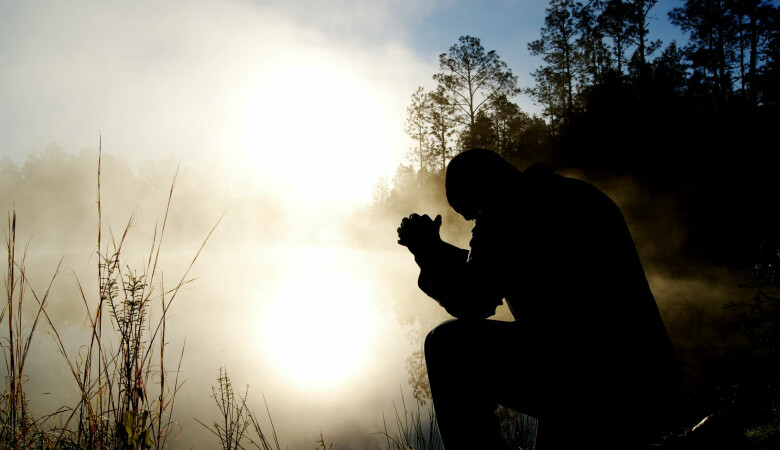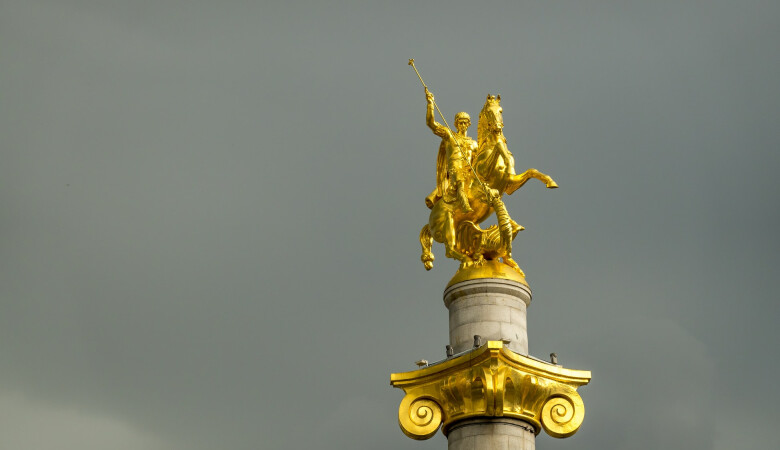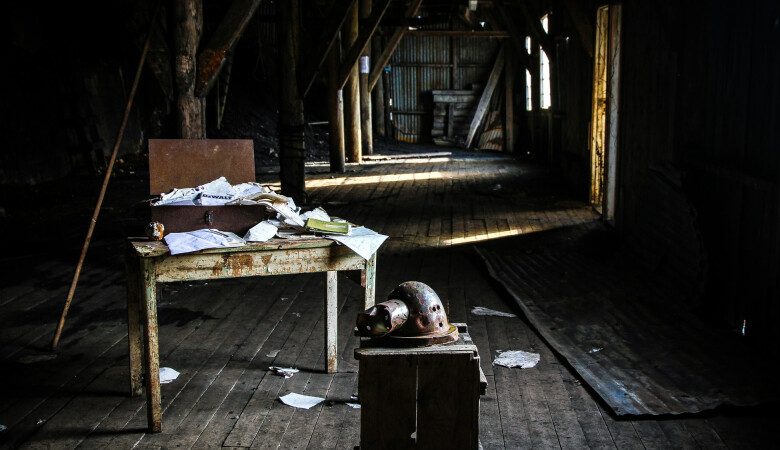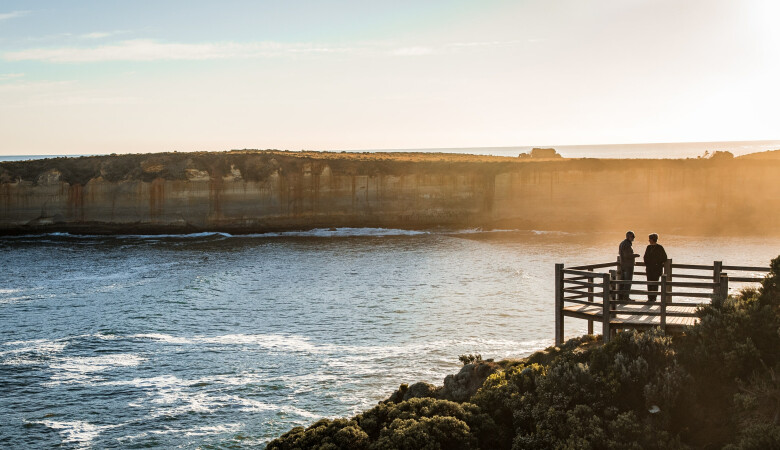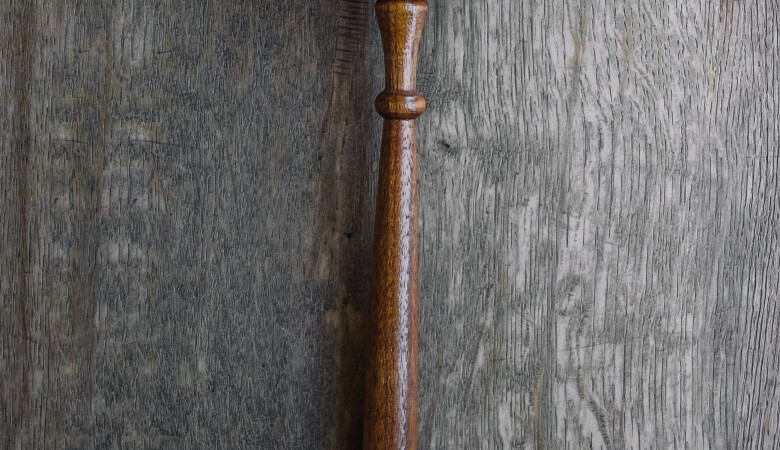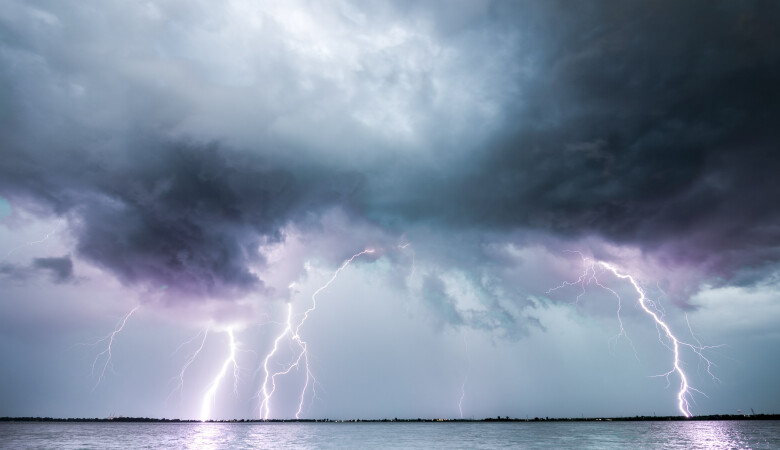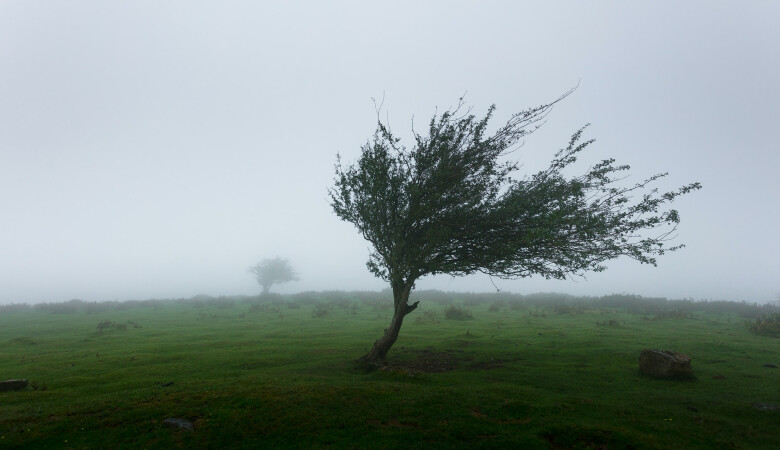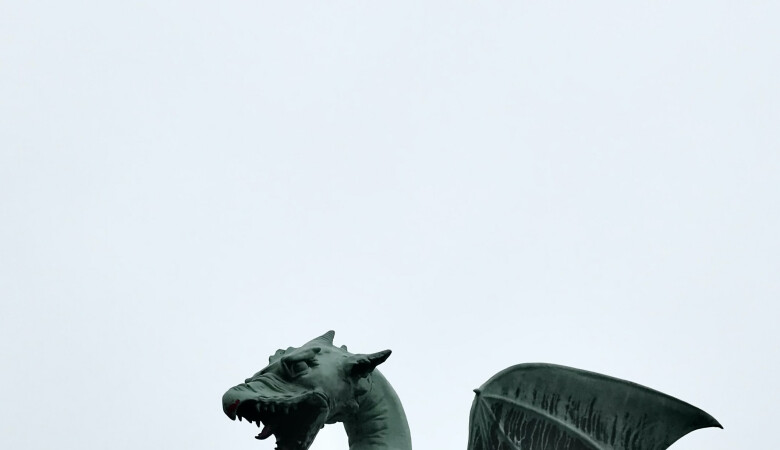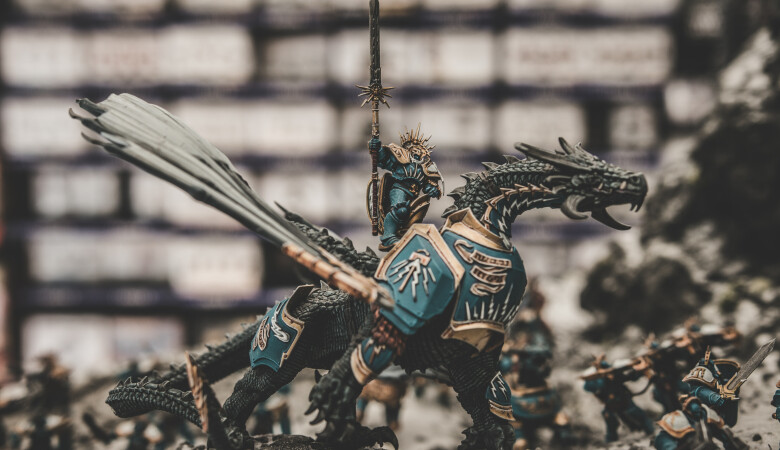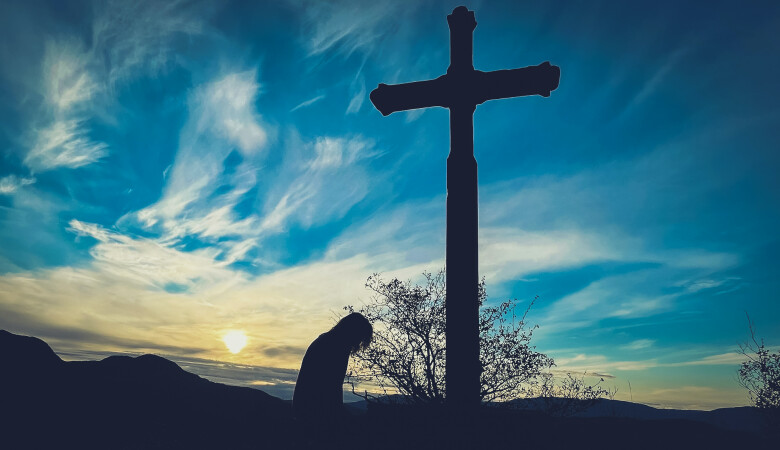Series: Job
God’s Wisdom in Creation Should Lead Us to Trust Him (Job Sermon 25)
October 10, 2021 | Andy Davis
Job 39:1-30
The Creation of Man, Creation
God speaks to a suffering Job in a surprising way - He uses his own wisdom in creation to humble Job and cause him to trust God.
- Sermon Transcript -
Turn in your Bibles to Job 39. We're actually going to do a couple of verses in 38 and on to 39. And as you do, I want to tell you, one of my favorite places on earth is Acadia National Park up in Maine. I've been there many times. It's a long way from here very far north, almost up in Canada. It's a long way north of Boston. It takes a long time to get there, but it is really worth it. It's a spectacular combination of elevation and of rocky shoreline. You know, the Cadillac Mountain is not high. It's not like some of the higher mountains in New England, in the presidential range of the White Mountains in New Hampshire, 6,000 feet, Mount Washington. It's not that, but it's just that the elevations, the high places are right on the coast and you can drive right up to some rocky cliffs and just sit there and look out and you can see, as far as the eye can see, you can see ocean on one side and spectacular rocky coast lines. You can see pine forests.
There's one place in particular that's my favorite. And we usually went there in October. We love to take October vacations, which we will do the next couple of weeks. And we would go up there when I was living in Massachusetts and New England, we would go up there around Columbus Day, around this time of year, and we'd see the foliage. And it was just so beautiful. And there's one place, it was really quiet where you could go and it didn't seem like anybody knew about it. And I would just sit there. And, and down far below was this beautiful blue lake called Echo Lake. And all of these pine trees were surrounding- all these deciduous trees that were just radiant with the oranges and reds and yellows of fall.
And in a certain time, from time to time, you could see birds of prey. I don't know what they were, maybe Peregrine Falcons, or maybe eagles, hawks. All of those are found in Acadia. And you could see them just rising on thermals and they would fly in circles. They would go higher and higher and you could watch them way, way down below you. And they would get higher and higher until they were about eye level with you. And then they would reach a certain height and they'd go right over your heads. You watch the whole thing for free. What a show.
And I thought about John Calvin, the Geneva theologian's statement that this world that we live in is a theater of God's glory. It's a theater of God's glory. Everywhere you look, you can see evidence of the glory of God, if you know what to look for. And the chapter we're going to look at today continues that same meditation that we began looking at last week, the evidence of the glory of God and physical creation. And the basic lesson is going to be, and the overall context of the book of Job, is that we should not murmur against God or question a God who can create the things we see in this world. But instead we should trust him with our lives. That natural creation, nature as we look at the inanimate creation in Job 38 and animate creation in Job 39 is ample evidence of the wisdom and power of God. And you should trust him when you're suffering. That's the overall point here.
"We should not murmur against God or question a God who can create the things we see in this world. But instead we should trust him with our lives."
Now, I believe that the Bible makes better arguments than that. The Job argument is good. The argument in Christ is better. And so that's why we're going to look at today's chapter, Job 39. Job as we've seen, was a righteous man. He was in anguish over cascading sorrows that God sovereignly brought into his life that had devastated his world. And he had been vocal, very vocal about his displeasure with God and what God had done in his life. Job lost all of his wealth and he lost all of his children. And then in the second stage lost all of his health, in wave upon wave of assaults on his life and sorrows. And though he initially praised God very well and did not sin against God in what he said yet, the trials went on longer than he could bear. And they bore down on him and they ground him down. And at some point he begins speaking disrespectfully about God. He portrays God as somehow delighting in crushing his people. And even worse that God has denied Job justice, that what has happened has been unjust. Now Job's friends came into his situation to try to counsel him, but they did a very poor Job. At one point, Job says, "Miserable comforters are you all," Job 16:2. And again, he says, "You are worthless physicians, all of you," Job 13:4.
But at the end of this incredible book, God shows up. He descends to speak to his suffering child. He comes down to counsel him and he is not a miserable counselor. In fact, he is a wonderful counselor. And God also comes to Job to heal him, first his soul, and then his body. And God is not a worthless physician. Now God's methodology in his counseling and in his healing is surprising. He does not come as we saw last week in that still small voice, that gentle whisper that he used with Elijah on Mount Horeb. Though, we would've perhaps chosen that. Instead, if he's going to come in a wind, he chooses to come in a whirlwind, in a tornado. God comes huge to Job with a mighty voice and with words to match. And that lines up with the level of trial he chose for Job's life. It was industrial strength. Very strong he came into Job's life.
Last time we saw God put Job in his place and also reestablish himself in his own place in Job's mind as the infinitely powerful and perfect God of the universe. And God uses his own achievements in creation, both in the original work of creation, what he made at the beginning, and then in his power and wisdom in both sustaining creation and governing it, running it. And he asked Job some questions to humble him, as we saw last time. "Who is this that darkens my counsel with words, without knowledge?” Job 38:2. Imagine hearing that from God. And then a couple verses later, "Where were you when I laid the earth's foundation? Tell me if you understand." Job 38:4.
Now God's point in all of this in Job 38 was to expose Job's limitations, as we saw last time. Job is limited. He's limited in time since he has not existed very long compared to God. He's limited in power because God asked, did you do this? Can you do that? He's limited in knowledge because God asked Job, “Tell me if you understand,” “Surely you know.” But God is infinite. He has no such limitations. He is infinite in time for he is eternal. He is infinite in power for he did all of these things of creation effortlessly, effortlessly by the word of his power. He is infinite in wisdom because everything that God made was exquisitely well constructed. And so in all of this in Job 38, he was saying, trust me, and stop trusting in yourself as Proverbs 3:5-6 says, "Trust in the Lord with all your heart and lean not on your own understanding; in all your ways acknowledge him, and he will direct your paths." That seems to line up so beautifully with the lessons of Job doesn't it? “Trust in me.”
So we saw on Job 38:1-38 God's activity in creating the heavens and the earth, as well as managing the activities of these inanimate objects. So inanimate objects like the earth, the sky, the sea, the wind, the clouds, the weather, the stars, all of these inanimate objects. Basically, I think of it this way. You could look at Job 38 as the establishment of a blank canvas woven thread by thread, stretched out perfectly flat on a wooden frame that he also made expertly, a large blank canvas of inanimate objects, rocks, water, air, light, sun, moon stars, hills, valleys, rivers, oceans, all of these inanimate things, being a blank canvas for his animate creatures to come and dwell in; animals, men to live out unfolding history.
And the blank canvas is ready for the master to paint a masterpiece brushstroke by brushstroke. The animals will come in each with their nature and habitats and instincts and populations, and God will manage their life cycles and their interactions in an ecosystem. But higher than that, higher than that is the unfolding of human history. The story of people, of men and women created in the image of God and what they choose to do. God doesn't mention it directly here in Job. He doesn't talk about that unfolding story, but clearly the book of Job does, talks about Job's story and the whole Bible does. And that really is the masterpiece isn't it? That is the painting that God has made on this blank inanimate canvas. The God who made such a magnificent canvas knows how to paint that masterpiece on it with the unfolding of human history. And it culminates in what goes vastly beyond anything the book of Job focuses on, and that is the salvation of sinners by the life, death and resurrection and the second coming of the Son of God, Jesus Christ. But the point is clear: the God who does all of these things is worthy of our trust.
I. God Delights in His Creatures
All right, so let's walk through this incredible chapter now. We begin by talking about how God clearly delights in his creatures. Doesn't he? I mean, as you read this, God is so proud of his animals. I mean, he really enjoys his animals. God made everything and he made it all good. And he has delighted in those things that he made ever since he made them. It says in Genesis 1:31, "God saw all that he had made and behold it was very good." And then I like Psalm 104:31 on this very point, "May the glory of the Lord endure forever; may the Lord rejoice in his works." I mean, I just think Job 39 is God doing that. That's God rejoicing in his works. You know in the heavenly realms at the beginning of this story, God boasted to Satan, “Have you considered my servant Job?” But it seems like in this chapter he's saying, “Have you considered my ostrich?” I mean, of all things, imagine coming to a grieving friend and putting an arm around them as they're broken hearted and saying, “Have you considered the ostrich in the midst of your suffering? Let's talk about the ostrich for a while.” Be like, “Are you out of your mind?” But God isn't out of his mind. He just is counseling Job. And effectively does that. “Have you considered the mountain goat and how she gives birth? Have you considered the wild donkey and the wild ox? Have you pondered the attributes of the horse as it runs?” Let the glory of the Lord endure forever. May the Lord rejoice in his works. You know what he's saying to all of us is, you know, “Your sorrow, your suffering is temporary, but your rejoicing in my works will not be temporary.” We're going to spend eternity celebrating them. So these sufferings are, as Paul will later call them light and momentary. God's delight in his works is not.
And so he is going to ponder each of these 10 creatures in order. There are 10. If you start in chapter 38, as I said, there's a couple of animals that he brings in there. And then chapter 39 is all the animals. So I think that chapter division should have been there, but it was what it was, but he begins in chapter 38 with the lion and lioness and then the raven and then chapter 39, eight more; the mountain goat, the doe, the wild donkey, the wild ox, the ostrich, the horse, the hawk and the eagle. So these are the 10 creatures that God brings out kind of one at a time and talks about a little. Believe me, God could say far more about each of them than he does. He just brings in just a little bit of how much he delights in them. And what does he discuss as he brings out each of these creatures one at a time? Well, he discusses and delights in their capabilities and also their limitations. It's going to be fun listening to God talk about how stupid the ostrich is, we'll get to that, but I find it interesting.
God created their strengths and their limitations. God created their instincts and their behavior patterns. He decided where they would live, what they would eat, what their population size would be. God oversees everything for his glory and his delight and then he actively manages it. He feeds and governs his creatures. And he starts in chapter 38 with the lion and the lioness. Look at verses 39-40. "Do you hunt the prey for the lioness and satisfy the hunger of the lions when they crouch in their dens or lie in wait in a thicket?" And then he goes on to the raven in verse 41, "Who provides food for the raven when its young cry out to God and wander about for lack of food?" So God is declaring that he feeds both of these creatures, both of these species, but they're feeding needs and patterns are very different from each other.
Lions hunt their prey, Psalm 104 says, at night they go out and prowl at night and God provides their prey for them in the form of zebras or gazelles or other large animals that they hunt and kill. Adult lionesses eat about 11 pounds of meat a day, while adult lions eat 16 pounds. On the contrary, ravens are scavengers. They have to scavenge about, and they eat a lot of things. They eat almost everything from small mammals to nesting birds, they eat eggs, they eat berries. They even eat carrion. Now the scripture makes it plain, that God feeds all of his creatures every day, Psalm 104:27-28, "These all look to you to give them their food at the proper time. When you give it to them, they gather it up. When you open your hand, they are satisfied with good things." I just want you to picture that. I just want you to picture that in reference to your life, God opening his hand and satisfying you with every good thing. Just know that it is from the hand of God, that all your good things come, vital.
God also decides when every creature will be born. And though it's not mentioned in Job 39, it is mentioned in Psalm 104, when they will die, how long they will live. So look at verses 1-4 of chapter 39, "Do you know when the mountain goats give birth? Do you watch when the doe bears her fawn? Do you count the months till they bear? Do you know the time they give birth? They crouch down and bring forth their young; their labor pains are ended. Their young thrive and grow strong in the wilds; they leave and do not return." So there's no birth clinic out there available for these animals. There's no midwives, no OBGYN. There's no veterinarians to aid the birth process out in the wild. The mountain goat, the pregnant mountain goat roams up on high as usual in the mountain peaks, scrambles on the rocky slopes of the mountain ranges. She is with young. And when the time comes, she gives birth. That's what happens. And so it also is with the doe. She's about to become a mother, but she has no assistance but from God. God knows how long the fawn must develop within her. And what the right number of months is that have passed. Do you know? I didn't know. Maybe you do know. Maybe you're one of the special people here at FBC that knows how long a fawn must gestate within its mother, six months. All right I will forget that fact. A year from now I won't know. It's like, “Pastor, you told us a year ago. It's six months,” but that's what he says to Job. “You don't know, you don't know, I do, but you don't.”
And after the young mountain goat or deer is born, they stay with their mother for about a year. And then, as God says, they leave and they don't come back home. They're no home visits after that, they're done. They thrive in the wilds on their own following innate instincts, that's the word we use for it, and internal programming that God gave them. And they will live on that. God's point to Job here is, “Do you know all these things? Are you watching over them? Do you know what to do? Are you counting the weeks till the time comes?” Now, God does this for every living creature on planet earth, that's mind boggling. For every creature He's doing this.
On the contrary, when God decides a creature must die, it dies. Psalm 104:29, "When you hide your face, they are terrified; when you take away their breath, they die and return to the dust." Or as Jesus said, very plainly in Matthew 10:29: "Are not two sparrows sold for a penny? And yet not one of them falls to the ground apart from the will of your Father." I'm thinking he means dies; that's why it would fall to the ground. So in other words, when it's time for the sparrow, an individual sparrow on planet earth to die, it dies according to the plan of God. He's managing the populations.
Then he mentions the wild donkey, verses 5-8, "Who let the wild donkey go free? Who untied his ropes? I gave him the wasteland as his home, the salt flats as his habitat. He laughs at the commotion in the town. He does not hear a driver's shout. He ranges the hills for his pasture and searches for any green thing." Wild donkeys are extremely territorial, more than dogs or horses. Wild donkeys travel long distances in search of the sparse vegetation they need to survive. God assigned their habitat to them and gives them enough food to survive. And it says, he laughs at the noise in the town because he doesn't live there. It has nothing to do with him. That's the point. He's running free. He goes where he wants to go. He has no driver beating him. There's no harness on him. He's not serving the interest of any master. He's a wild donkey and he enjoys his freedom and, “Job, you didn't give it to him. That was my doing. I gave him his freedom.”
And then there's the wild ox, verses 9-12, "Will the wild ox consent to serve you? Will he stay by your manger at night? Can you hold him to the furrow with a harness? Will he till the valleys behind you? Will you rely on him for his great strength? Will you leave your heavy work to him? Can you trust him to bring in your grain and gather it to your threshing floor?" Well, some animals are domesticated. As the book of James says, when he talks about the tongue, “No man is able to tame the tongue.” He says, all kinds of animals, beasts, creatures have been tamed and are being tamed by man. So man can do that. You can tame them and harness them and use them for purposes. Oxen are definitely among them. They're probably the strongest of all domesticated animals. They're known for their strength. Farmers have used them for millennia to pull the plow and harrow the fields. Proverbs 14:4 says, "Where there are no oxen the manger is empty, but from the strength of an ox comes an abundant harvest." Oxen themselves can weigh as much as 2,000 pounds, a ton, and they can pull a ton. It's incredible. They're staggeringly powerful. Now, as I said, many oxen are domesticated, but that's quite a process. There's a certain intelligence that goes to getting them to do all of the functions that God talks about here, but the wild oxen won't do it. They're out free. In any case, God made the oxen like he did. It was God that gave them their great strength. It was God that gave them the capability of being domesticated and used. And then it was God that gave to human beings, the ability to domesticate them. God did all of these things.
And now we come to my favorite, the ostrich. I mean, what do we even say about the ostrich? I actually think one of the sub themes of the book of Job is how not to counsel people like Eliphaz, Bildad, and Zophar, don't do that. I don't know about the ostrich. I know that God is doing it here; I wouldn't recommend it friends. But here is the ostrich, verses 13-18, "The wings of the ostrich flap joyfully, but they cannot compare with the pinions and feathers of the stork. She lays her eggs on the ground and lets them warm in the sand, unmindful that a foot may crush them, that some wild animal may trample them. She treats her young harshly, as if they were not hers; she cares not that her labor was in vain." That's my favorite verse, verse 17, "For God did not endow her with wisdom or give her a share of good sense." That's God saying that. We'll get back to that in a minute. "Yet when she spreads her feathers to run, she laughs at horse and rider." Look, I want to start with the ostrich on just how odd looking she is, in my opinion. Maybe some of you think she's beautiful. I'm not thinking that. I think she's odd looking. She's tall and gangly and ugly and gray. Female ostrich's are about six feet tall. Males can get as tall as nine feet. They weigh about 200 to 280 pounds. They are big birds. Her wings strangely do not enable her to fly, but they do give her balance while she runs.
God says, and this is interesting, "Her pinions and feathers do not compare with those of the stork." It's like, if you want to talk to me about pinions and feathers, we're going to go to a stork, not the ostrich. But it was God that chose that. God said I gave better pinions and feathers to the stork than I did to the ostrich. Then he zeros in on the foolish behavior of the ostrich with her eggs. Ostrich eggs are the largest on planet earth, six inches long, five inches across weighing as much as three pounds. One place I was reading about them said the ostrich egg is not only the largest egg on earth, it's also the largest single cell on earth. But God says that she lays them on the ground and lets them warm in the sand. He said that's foolish. In God's opinion, that's foolish for her to do because a foot may come along and crush it. God says in verse 17 that, “God did not endow her with wisdom." Now just let your mind mull over that for a while. Why didn't he? He could have. He could have made her really smart. He didn't. And it just shows God's providence. He just measures out capabilities and sets boundaries around them. He knows exactly what he's doing with this. Furthermore, he says concerning the ostrich that she treats her young harshly as if they were not hers, but in another place, God zeros in on the zeal that a mother bear has for her young, extremely protective. Proverbs 17:12 says: "Better to meet a bear robbed of her cubs than a fool in his folly." I like that proverb. But the mother bear is going to be incredibly zealous, angry and raged if you touch any of her cubs. Ostrich couldn't care less. It's like it has nothing to do with her.
Or what about a human mother with her nursing infant? God chooses her as a pinnacle example of committed love. Isaiah 49:15, "Can a mother forget the baby at her breast and have no compassion on the child she has borne?" He says, "Though she may forget, I'll never forget you oh Israel." but the ostrich is designed differently by God. God actually seems to insult her for her foolishness, which he effectively gave her. Verses 16-17, "She treats her young harshly as if they were not hers. She cares not that her labor was in vain for God did not endow her with wisdom or give her a share of good sense." But she can run! Verse 18, "Yet when she spreads her feathers to run, she laughs at horse and rider." And it's true; ostriches can run in short bursts up to 43 miles an hour. That's unbelievable, 43 miles per hour. Sustained speeds, over long distances, 31 miles an hour. A single ostrich stride can be as much as 16 feet in length. They're covering ground. Now God doesn't say anything directly to Job about him and the ostrich, but it's clear that God is saying, “I made an ostrich. What did you make? Can you make an ostrich? Would you have made an ostrich, if you could have? If you could make one creature, would it be the ostrich? Probably not, but I made her.”
And then he moves from that to the horse. The very thing he just mentioned that she laughs at horse and rider, but then he goes to talk about the horse verses 19-25, "Do you give the horse his strength or clothe his neck with a flowing mane? Do you make him leap like a locust striking terror with his proud snorting? He paws fiercely rejoicing in his strength and charges into the fray. He laughs at fear, afraid of nothing. He does not shy away from the sword. The quiver rattles against his side, along with the flashing spear and lance. In frenzied excitement, he eats up the ground; he cannot stand still when the trumpet sounds. At the blast of the trumpet, he snorts, 'Aha!' He catches the scent of battle from afar, the shout of commanders and the battle cry." Whenever I think of God's creation of the horse and these incredible verses, my mind goes back to Secretariat winning the Belmont in 1973. One of my favorite sporting moments in history. It was incredible. I remember watching it and as Secretariat just kept going further and further and further away from all the other horses and the commentator, one of the great calls in the history of sports, Chick Anderson saying that, “Secretariat is running like a tremendous machine", one and a half miles setting a record that still hasn't been even approached. Just the beauty of that chestnut red horse, just moving like a machine. It was just beautiful to watch. I can still see it. I watch it probably once or twice a year; just remembering what that was like. And God speaks to Job of that strength and the courage of the horse in battle utterly fearless, ready to go, pawing the ground, ready to charge, no fear at all, going into the bloody fray, speed astonishing, as the horse eats up the ground on the charge, ground shaking beneath pounding hoofs. And God addresses Job directly this time, "Did you give the horse its strength or its beautiful mane? Did you do that?"
And then he finishes with birds of prey, the hawk, and then the eagle verse 26, "Does the hawk take flight by your wisdom and spread his wings toward the south? Does the eagle soar at your command and build his nest on high? He dwells on a cliff and stays there at night; a rocky crag is his stronghold. From there he seeks out his food; his eyes detect it from afar. His young ones feast on blood, and where the slain are, there is he." I mean hawks are really magnificent creatures, really magnificent, soaring through the air. They're fierce, fierce hunters, swooping down from the heavens at over 150 miles per hour to grab their prey with sharp talons. When they migrate, they fly over a thousand miles from the nesting to the feeding areas. Can you imagine having hawks after you, going after you I mean? What would you do? It's terrifying, but God restrains them, but they have incredible capabilities.
And then eagles are even more amazing creatures than hawks are. They're incredibly strong. An eagle is able to pick up and fly with over four times their own body weight. That's strong, up to 35 pounds. As God mentions, an eagle's eyesight is amazing. Human eyeballs have 200,000 cones per millimeter on our retinas. That gives us our precision and seeing. But eagles eyes have five times the density, 1 million cones per square millimeter. So normal eyesight, we have that rating of 20/20, but eagles are 20/5. So what that means is what looks sharp and clear to us at five feet looks just as sharp and clear to eagles at 20 feet. An eagle flight is, if anything, even more amazing riding thermal columns, as I described. They can ascend to higher than 10,000 feet using thermal currents. They can go for a long time without even flapping. And God humbles Job again and through Job, all of us, asking if hawks fly by our wisdom or if eagles soar at our command. No they don't. They do what they do independent of man. We don't do anything in reference with them, but God does. God created them. God sustains them. God governs them.
And so Job is completely humbled in all of this while God is being exalted. Look again at all the "do you" passages in Job 39. “Do you know when the mountain goats give birth,” “do you? Do you watch over the deer when they give birth? Do you count the months of their gestation period? Do you know the right times for them to give birth?” Job has to confess total ignorance of these things. “Did you let the wild donkey go free? Was that your decision? Did you decide what his habitat would be? Did you provide some green vegetation for him to eat? No, you didn't. What about the wild ox? Perhaps you might have the knowledge to train and domestic domesticate him, but did you give him his mighty strength? No you didn't. What about the ostrich? Can you make such a strange, foolish, but fast bird? Would you ever come up with such a creature and did you design the horse with its stunning speed and its magnificent mane flowing in the wind? Did you give it its courage? And are you in charge of the hawks flying? Do you know how to design a wing with its feathers and its bones and its tendons and the brain of the hawk to use its tail feathers to stabilize him while he rockets to the earth at 150 miles an hour, blinding speeds. And do you command the eagle to fly and does it obey you?” So we see in all of this God's direct activities, not just with these 10 creatures, these are just representative creatures. He does it with all the creatures, all of them. God made each of them. He sustains them by the word of his power. He gives them their attributes, their abilities. He decided how much strength they would have, how much intelligence they would have, what their lifespans, their populations would be, their native habitats, how they would interact with each other in ecosystems. God programs their instincts. They do not think in reason like human beings, they don't study and learn. They have instincts and they react instinctively to do what God designed them to do. Their parents didn't teach them these things. They're not in deer school or wild donkey school for a while and then they graduate. They just do what they instinctively were created by God to do.
And God actively cares for them, feeding them, guiding them, protecting them or giving them over to their prey, as predators. God decides how long they live, when they will die. And he does this, not just with these 10 creatures, but with every creature on planet earth. Now how many are there? I don't know. No one knows. Biologists have recently estimated, this is one of my favorite little stupid moments in my research. Ready? Get ready for some scientific stupidity. Biologists have recently estimated that there are over 8.7 million different species of living creatures on earth, give or take 1.3 million; 8.7 give or take 1.3. I'm a significant figures guy. Where do they come from? Oh, how in the world these scientists have come up with these figures I don't know because these same people say that, get this, 86% of the land species and 91% of the aquatic species have yet to be discovered. 86% have yet to be discovered? Is your mind having a hard time with that? Not 85% have yet to be discovered. All right, let's just say roughly four to five, six million species are known and cataloged and God sustains them all and gave all of them their capabilities and their capacities. And he weaves them all together in a balanced ecosystem that doesn't get out of whack.
Like a number of years ago, when some scientists tried to do an independent closed system ecosystem, which they called biosphere two, honoring the earth as biosphere one. And they're trying to think of some closed systems that could function on Mars, let's say. And they put this- they put eight people in a kind of a dome experience, cut off from everything else. So everything was supposedly self-sufficient within it. And there's all these interactive systems and artificial rainforests inside it, a miniature ocean with a coral reef, a mangrove wetland region, a Savannah grassland region, a fog desert, an agricultural region for human farming and a place for the eight humans to live, probably not very big. Despite the best efforts at balancing the oxygen, carbon dioxide, the waste products and the cycles of life and death among its animals, birds, insects, and microbes, no surprise, the whole thing failed miserably and pretty quickly. The oxygen level kept dropping. If I'm one of the eight people in there that's going to be worrisome. The fish died off very quickly. The populations of greenhouse ants and cockroaches exploded. As I've said before, cockroaches seem to do well everywhere. Oddly, the morning glories overgrew the rainforest crowding out all other plants. So all you got left are morning glories, hope you like them. The best thinking of ecologists and scientists and biologists, and over 200 million dollars could not produce a balanced sustaining ecosystem, but God did it. And God didn't just do it once, he did it twice. He did it with the perfect world where everything was beautifully balanced and then he cursed it and still made it function properly. Now that's incredible! The cursed world is still functioning, amazing! And in all of this, we're supposed to see the wisdom of God and the power of God and the love of God.
II. God Convicts Job
And so he brings the lesson home to Job and he convicts Job. Look at verses 1-2 of chapter 40, "The Lord said to Job: ‘Will the one who contends with the Almighty correct him? Let him who accuses God answer him!’" And so Job sees the point. As Paul says, in Acts 17:24, "The God who made the world and everything in it is Lord of heaven and earth." I mean, that's it, isn't it? “The God who made the world and everything in it is Lord of heaven and earth.” His power and his wisdom and his love are clearly on display in what he has made and such a mighty, wise, loving God can be trusted in whatever he does. Managing your life is small work for God and God doesn't make any mistakes, therefore Job sinned gravely, when he accused God of making mistakes or of wrongdoing and he failed to trust in God. Who does Job think he is? And who do any of us human beings think we are to challenge and question such a God? As Paul said plainly in Romans 9:20, "Who are you, O man, to talk back to God? Shall what is formed say to him who formed it, 'Why did you make me like this?'" God is not accountable to us, a point I'm going to make, God willing, in a few sermons: God isn't accountable to us. And neither does God have to answer for any of his decisions about us. God's track record of awesome creation and skillful management of that creation is impeccable. But Job is answerable to God. Job is accountable to God and God demands an answer from him. And so Job begins his process of repentance. Look at verse 3-5, "Then Job answered the Lord: ‘I am unworthy- how can I reply to you? I put my hand over my mouth. I spoke once, but I have no answer- twice, but I will say no more.’" Job felt his deep unworthiness. He knew how sinful it was for him not to trust God in the handling of his life's affairs. He's now disgusted at what he said. He's disgusted at the ignorance it displayed. And he resolved not to speak again in the holy presence of almighty God. He knows that God is perfectly worthy of all praise. And he is ashamed of his complaining and his charging of God with wrongdoing. This is what repentance is. It's turning away from sin to God in a right relationship with God.
"His power and his wisdom and his love are clearly on display in what he has made and such a mighty, wise, loving God can be trusted in whatever he does."
III. Lessons for Us Today
All right, so finally, what are some lessons that we draw for us today? First I wanted to speak to any that may be here that are non-Christians. Nature can tell you, does tell you every day that there is a God and it tells you some of what he's like, some of what he's like. There is overpowering evidence around you every day of the existence of a creator God, a God who made all things, who rules all things and to whom you are accountable. Romans 1:20 says, "For since the creation of the world God's invisible qualities - his eternal power and his divine nature - have been clearly seen, being understood from what has been made, so that people are without excuse." What does that mean? God's invisible qualities of his wisdom and his power on display in Job 39 in all of these species and what he does for each of them, God puts himself on display. And Paul says that the creation proclaims the existence and nature of God as a mighty king, a loving provider, a wise ruler and the judge of all the earth. And he says in Romans 1:20 that the evidence of your eyes around you leaves you without excuse. You'll have no excuse on judgment day. Now I know that the existence of God, as you look at creation, that the creation doesn't make God's existence logically inescapable; you're checkmated by it. No, you can, there are ways out. Evolution is a way that people have taken out. They look at it and they say, "Oh, what a wonder that all of this came about by evolution?" Yeah, it's pretty amazing that you think that. I remember a National Geographic article on the body's immune system and they called it a miracle of evolution. I was like, help me with that phrase, miracle of evolution. But that's people suppressing the truth and unrighteousness and hardening their hearts against the clear evidence of God in creation. And so it's not logically inescapable that there's a Creator, but on judgment day, you'll find out it was morally inexcusable not to believe in him.
Now the greatest evidence though, of God's care for us and God's justice is not found in creation. We can't see in creation evidence of God's justice. We have to see that in history and specifically in his Son, Jesus Christ. And so the New Testament is written (Matthew, Mark, Luke, John) giving the biography of Jesus, how he was born of a virgin, how he lived a sinless life, how he taught incredible teachings, such that no one had ever spoken like this man spoke. And how he controlled nature, spoke to the wind and the waves and they obeyed him. How he fed 5,000 with five loaves and two fish. How he could do all of these things. How he lived a sinless life and how, especially he died an atoning death under the wrath of God, for sinners like you and me. And that was the greatest display of the justice of God there's ever been. God would rather kill his own Son than let sinners like us into heaven without our sins dealt with.
But it also shows the love of God. How, in Christ, God has loved us. And finally, in the end friends, I say this to you, my Christian brothers and sisters as well, Christ is God's answer to our suffering. I believe that the arguments of Job 39 are compelling. I think they're strong, but they're just not the best arguments. The best argument of God's compassion for you and your suffering is the death and the resurrection of his own Son, Jesus Christ. Trust in him for the forgiveness of your sins and trust in him also for the management of your life, through all of your sorrows and your sufferings.
Close with me in prayer. Excuse me. Father I thank you for your wisdom and creation. There is no God like you. There is no one else like you are the creator, the sustainer of all things. And I thank you that you have woven such wisdom and such love and power in creation. But I thank you that the story of Christ is infinitely greater. And how in the story of Christ, we see the answer to all of our sorrows and our sufferings. That Christ is our sin bearer. He is our substitute and he is also wisely running our lives so that we can trust in him. Help us to do that, to trust in him. In Jesus name. Amen.






